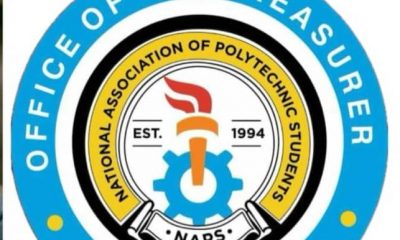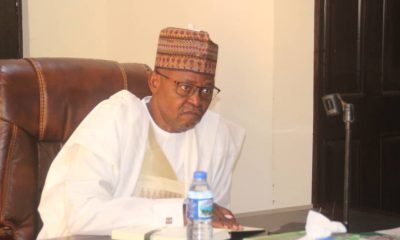Education
We Screwed Up Public Education, Now It The Time To Fix It
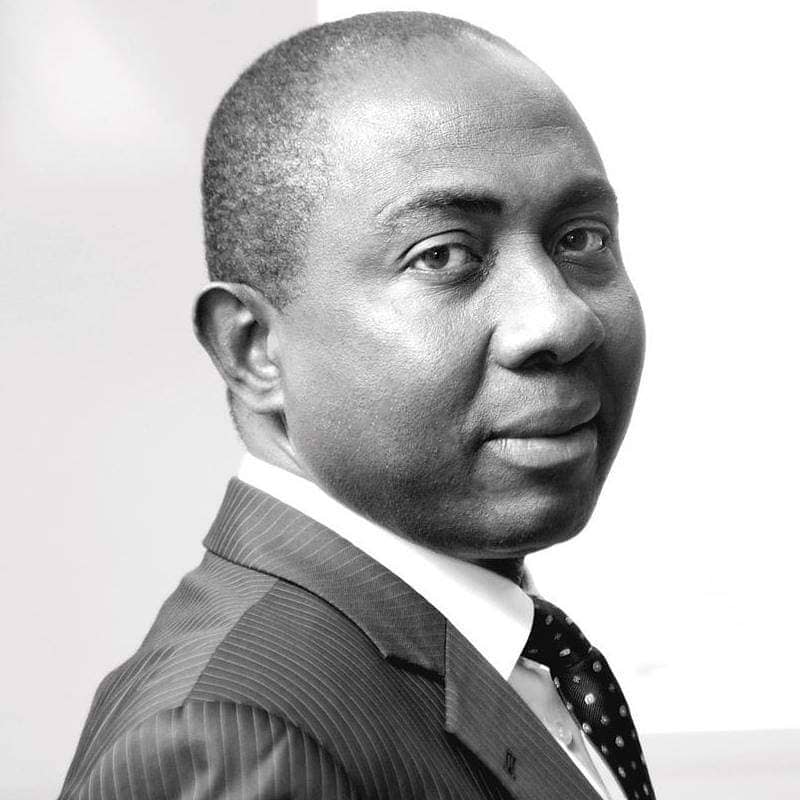
By Akin Olaniyan
Nigeria has always been an interesting case. It’s the richly endowed country that is also home to some of the world’s poorest. It is where sprawling mansions exist in close proximity to slums. For some unexplainable reason, we have struggled to transform the mineral and human endowment into a better quality of life for all Nigerians. Inequality has been a permanent feature of our nation, the rich-poor divide being one of the most dispiriting.
Right from independence in 1960, when we seemed to replace one group of ‘lords’ with another, democratic politics and prebendal politics have been, what Richard Joseph, famously termed ‘one side of the same coin.’ Since 1987 when he made those observations in his book, ‘Democracy and Prebendal Politics In Nigeria: The Rise and Fall Of the Second Republic,’ politics has become the most lucrative business in the land and elevated government officials or anyone close to them, thereby furthering inequality.
This elitist system leaves the majority struggling to get anything close to a decent living. The mansions, big cars, and private jets have mostly defined inequality, but private education has lately become another feature of the widening gap between the rich and poor.
Embraced first by the rich and the middle-class, private education is preferred because of the belief that it gives the student a shot at a good life. The idea is simple: a good education will grant access to the good life and open the door to the elite, pampered class. Until 20 – 30 years ago, public schools guaranteed this social mobility. I am in the generation that knew only public schooling, and I confess they were great in those days. I recall my time in Ilesa Grammar school in the early 80s and the fact that we had teachers from the Commonwealth, including those from Canada and India. My experience at the University of Ibadan from the mid-80s was no less enriching, but my children have known nothing but private schooling.
Most of the public secondary schools and universities in our time had the human and infrastructural capacity, which helped to provide quality at reasonable costs. However, years of misplaced policy, neglect, and mismanagement have turned most public schools into shadows of themselves. It looks as though policymakers and the schools stood still at a time of rapid technological changes and increasing demand for school places. Most of our tertiary first-generation institutions, like the University of Ibadan, are particularly worst hit, a lot of them looking worse than they did when some of us were there.
The constant closures due to protests and labour disputes worsen a bad situation. Students enrol now not sure of when they would graduate; the result being that sometimes, four-year programmes don’t finish in six or seven years. Even though there is no evidence to suggest that private schools are necessarily better, most parents are happy that their wards can at least finish academic programmes on schedule. I doubt, though, if any parent will question the quality in some of those private secondary schools and universities; otherwise, they won’t be attracting the level of patronage we are seeing. The only danger, of course, is that the worsening state of public schools could further the inequality because hundreds of thousands of otherwise promising students are either denied access to quality education or when they manage to secure places, delayed for longer than necessary. Not only do many of those whose parents can afford private schools move faster, but they also end up abroad for graduate studies, further stretching their advantage. This is important because top companies appear to favour those with degrees from foreign schools in recruitment.
If the case of public schools was bad, Covid-19 threatens to make it worse. Lockdown learning is proving to be a measure of social inequality with the children from affluent homes and neighbourhoods enjoying full timetables and those from poorer families getting no home lessons. The lockdown imposed to curtail the spread of the virus means Churches, Mosques, businesses, and schools are closed. This disruption to normal life has challenged leaders and exposed the shortcomings of those who are either not prepared for change or lack the capacity to cope with it. While some are complaining about the lockdown, others have embraced it and are utilising technology to keep their companies, schools, and churches going. It should worry us, especially where our children’s education is concerned, that those willing to embrace the change are making progress during lockdown while others wait. I am impressed that some secondary schools are organising tutoring online, using Zoom and WhatsApp and that some higher institutions like Babcock University have concluded plans to conduct semester examinations online. While this is commendable, and knowing that most public schools are ill-equipped for anything but in-person tutoring and supervision, the question is: would Covid-19 further inequality?
This is a question that should be of interest to us all since increasing globalization has made education a measurement of a nation’s ability to compete in the future. The world is shrinking every day, and top firms have a pool of talents from across the globe to pick from. You don’t even get in that pool unless you have received what can be considered standard education and training. Nigeria already lags in this regard, falling behind other African countries in funding for research and development as well as research output. The frightening thing is that we even risk dropping further behind others in this all-important race due to our inability to adapt to meet the challenges of Covid-19. For instance, while most of our universities are closed, South African schools were quick to decide to move teaching online. You cannot but be impressed with the detailed arrangements. Telecoms companies were persuaded to make 30Gb free data available to students for a month to enable them to attend online classes via Zoom or Microsoft Teams. Some schools made laptops offers to students who needed assistance in that regard. The result of such quick thinking is the students have only missed the few weeks it took for the schools to set up and move lectures online. This is where the approach taken by the likes of Babcock is commendable and why the Federal Ministry of Education, as well as the National Universities Commission (NUC), must rethink their policy on tertiary education in Nigeria.
Covid-19 has shattered social relationships as we know it and may alter the way we worship, do business or study permanently.
Forward-thinking policymakers must ask: what if restrictions on social gatherings last longer than anyone can imagine? If the lockdown continues into 2021, for instance, would our tertiary institutions remain locked till then? We need to learn from those who are adapting in an exemplary fashion and act fast. Some institutions are already making preparations on the assumption that Covid-19 is the new normal, and in the absence of anything to prove otherwise, that should be a model for everyone. The California State University, America’s largest four-year college system, announced last week it is cancelling most in-person classes in its 23 campuses from September. As we approach the next school session, others may well follow the lead. The University of Johannesburg last Wednesday held a virtual graduation ceremony, again signalling the readiness to work with this new normal. With available technology, nothing should stop business meetings, church service, and tutoring.
Nigeria lags behind many African nations because successive governments and the NUC have failed miserably with policies on tertiary education, but Covid-19 presents an opportunity to course-correct. University teaching staff have always complained about funding, and their arguments may be valid because others are outspending Nigeria in research funding. Federal and state governments, Tetfund and university administrators have failed students but Covid-19 is a chance to redeem the situation. The most puzzling of all is the continued relevance of Tertiary Education Trust (Tetfund), which among other things, was founded to ‘promote cutting-edge technologies, ideas and organizational skills in education, and ensure that projects are forward-looking as well as responding to present needs.’ It has to be said though that Tetfund has done creditably well by promoting quality scholarship through foreign post graduate scholarships, and conferences that expose lecturers to the most recent theories, practices and skills. However, for as long as students in our higher institutions are still forced to submit academic papers and thesis in print; If they have to print out copies of PowerPoint to read from when making presentations; if lockdown means schools are on break until further notice; If instruction and supervision of students cannot hold without physical contact, then Tetfund is failing in one of its most important goals. Future interventions should be directed at building IT infrastructure to enable more convenient and effective learning as well as re-training of teaching staff to make them IT-compliant.
Governments at the federal and state levels, which fund tertiary education should understand the enormity of the problem and increase budgetary allocation to the sector to enable our schools compete on the global stage. Budgetary allocations usually signal the intention of policymakers and recent figures show other African countries have a better understanding of the importance of the place of education in national development. Available data shows that South Africa’s allocation to educated in 2018 was 6.16% of the country’s Gross Domestic Product (GDP), while Ghana managed 3.99% for that year. The World Bank and the United Nations Education and Scientific Organisation (UNESCO) do not have the figures for Nigeria but the federal allocation to education in 2018 was N102.9 billion, which amounts to well below 1% when the Naira rate and the GDP rate for that year are factored in. Lastly, university administrators must also re-strategise, possibly by building businesses on research and development instead of selling bread and bottled water. With a strong partnership with corporate Nigeria, they can generate more funds to invest in IT. Only a few public universities have the required infrastructure to even admit online so, to ask for remote teaching would be asking for too much. It sounds daunting, but there is no other way to compete with the rest of the world, especially if we are to address the inequality between private schools and their public counterparts.
Akin Olaniyan is a communication specialist and PhD candidate at the University of Witwatersrand, Johannesburg
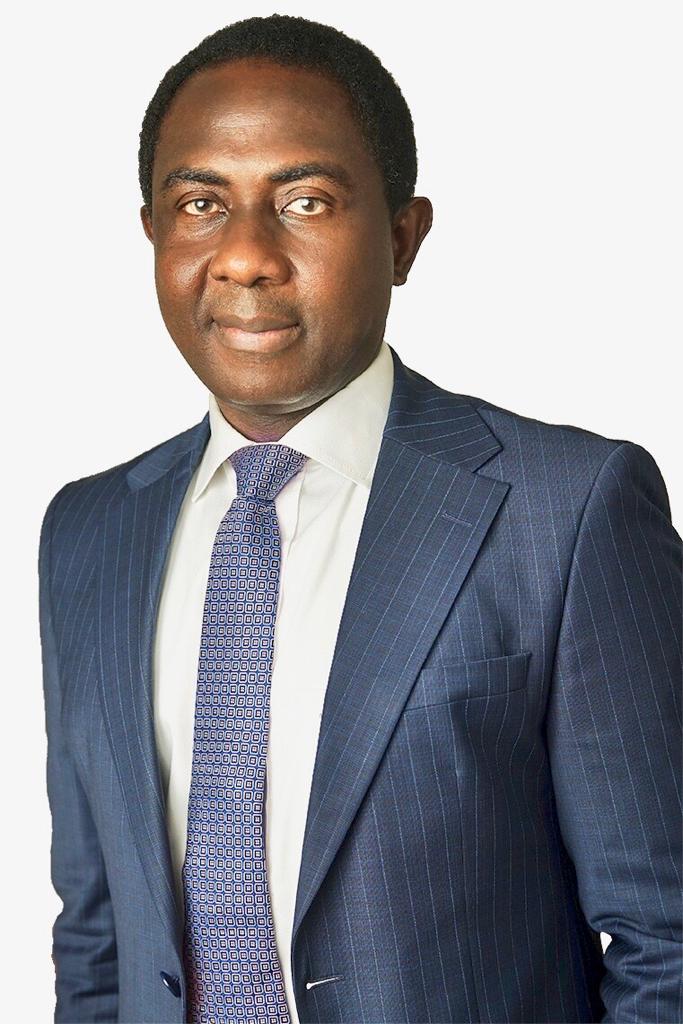
Education
FAB Luxury Court Sets A Rare Benchmark For Excellence In Africa

FAB Luxury Court Sets A Rare Benchmark For Excellence In Africa
~By Oluwaseun Fabiyi
Fab Luxury Court distinguishes itself as the premier choice for reliable investors and proactive developers in Nigeria and Africa.While numerous real estate entities operate within the country, Fab Luxury Court stands out for its exceptional honesty and integrity, delivering on the promises showcased on its social media page to distinguished customers globally.
As of now, no investors, whether domestic or international, have expressed regret over investing in or partnering with Fab Luxury Court. The company’s commitment to accessibility, accountability, and transparent financial reviews sets it apart from its contemporaries, rendering it a prized asset among its extensive clientele worldwide. Thousands of customers continue to patronize Fab Luxury Court due to its impeccable integrity and visionary approach.
*Why is Fab Luxury Court a worthwhile investment that warrants prompt consideration rather than hesitation?*
Fab Luxury Court’s security measures are exemplary and deserving of commendation, providing investors with capital protection through a robust structured framework, transparent reporting, and comprehensive legal documentation, thereby guaranteeing outstanding and secure returns.
Fab Luxury Court has further cemented its position as a leading developer and real estate powerhouse in Nigeria and Africa, currently managing several high-end estates in Maryland, Ikeja, Lagos and its surrounding areas.Fab Luxury Court demonstrates its unwavering commitment to excellence in Nigeria’s real estate sector through its best-selling estates in Ikeja.
Undoubtedly, partnering with and patronizing Fab Luxury Court will significantly contribute to securing your future; as you plan to associate with them in 2027, we encourage you to maintain a positive outlook and unwavering confidence in your future wealth.
Education
Edukate Africa holds summit to tackle funding barrier in education

Edukate Africa holds summit to tackle funding barrier in education
By Ifeoma Ikem
Edukate Africa, an edu-fintech platform is set to host the Disrupt Education Summit Africa (Disrupt ED) aimed at tackling funding barriers, skills gaps and curriculum mismatch in Nigeria’s education system.
The Director of Edukate Africa, Francis Omorojie who disclosed this to newsmen explained that the initiative was driven by the high rate of school dropouts linked largely to financial constraints, particularly at the higher institution
Omorojie said the summit scheduled for January 29 at the University of Lagos will bring together government officials, universities, financial institutions, private sector players and philanthropies to rethink education financing and prepare young Nigerians for the realities of today’s digital workforce.
He said that more than 50 percent of students who drop out of higher institutions do so because they cannot afford tuition and related costs, a situation he described as a major contributor to unemployment, brain drain and irregular migration.
“Africa’s youthful population could either become an economic advantage or a liability, depending on how well education and talent development are managed.
“Education is a fundamental need, but financial exclusion has continued to shut out many promising young people. When students drop out, it feeds unemployment and social instability.
“Our mission is to build innovative and sustainable financial models that keep young Africans in school and help them become productive,” he said.
He noted that Edukate Africa is deploying blended financing solutions that include tuition guarantees, technology driven scholarship platforms, gig and remote work opportunities for students, and partnerships with universities and philanthropies to establish endowment and alumni funds.
He said that the platform pays tuition directly to institutions after verifying students’ admission and academic records, ensuring transparency and accountability for donors.
“The summit would focus on aligning education with the fast changing nature of work, driven by digital transformation, artificial intelligence and emerging technologies as any university curricula are lagging behind workplace realities, leaving graduates ill prepared for employment.
“There is a clear disconnect between what students are taught and what employers need. This summit will create a roundtable where government, academia and the private sector can agree on the skills required for today’s economy and how to integrate them into learning.
“It will also examine education financing models, including how banks and financial institutions can design student friendly funding products, and how existing initiatives such as the Nigeria Education Loan Fund can be strengthened and scaled.’’
Omorojie added that Edukate Africa would use the summit to launch the CommUniversity Endowment Fund, a community led investment fund designed to generate sustainable returns that will be used to sponsor vulnerable students and support young entrepreneurs.
Unlike traditional grant models, he said the fund would invest in revenue generating businesses, with dividends channeled into education support and seed funding for student led startups.
He said the initiative would also promote innovation through activities such as Pitch My Dissertation, Africathon and inter university debates, encouraging students to turn academic research into commercial solutions and job creating ventures.
According to him, over 1,000 students and recent graduates are expected at the summit, with a partners’ pavilion providing employers and organisations direct access to top talent.
He added that Edukate Africa has already supported students in Nigeria, the United Kingdom and Uganda to complete their education, in some cases with relatively small amounts that made the difference between graduation and dropping out.
He said that the ultimate goal is to move beyond access to education and ensure that young people graduate with relevant skills, funding support and pathways into employment or entrepreneurship, thereby contributing meaningfully to Nigeria’s economic development.
Also speaking, Tosin Adebisi, Co-Founder of Edukate Africa said the Disrupt ED Summit was designed as a disruptive and transformative convergence that would move beyond familiar conversations to practical collaboration.
Adebisi said the summit was built around a new framework called Communiversity, which seeks to integrate universities, policymakers, industry, the third sector and students into a single ecosystem.
“Rather than everyone working in silos, Communiversity brings together policymakers, universities, industry and civil society, with students at the centre, to address access to education, the future of work and Africa’s competitiveness.
“Communiversity model would leverage alumni networks, high net worth individuals and diaspora support to unlock sustainable funding for universities.
“The summit is being organised in partnership with the University of Lagos and the University of Birmingham, with support from the Federal Ministry of Education.’’
The dignitaries that would grace the occasion include, Minister of Education, Dr Tunji Alausa; the Provost and Vice Principal of the University of Birmingham, Professor Nick, the Chief Operating Officer of Semicolon Africa, Ms Ashley Immanuel; and the Chief Executive Officer of Sterling One Foundation, Mrs Olapeju Ibikwe
Education
FCAIB is set to launch degree programmes in partnership with FUNAAB
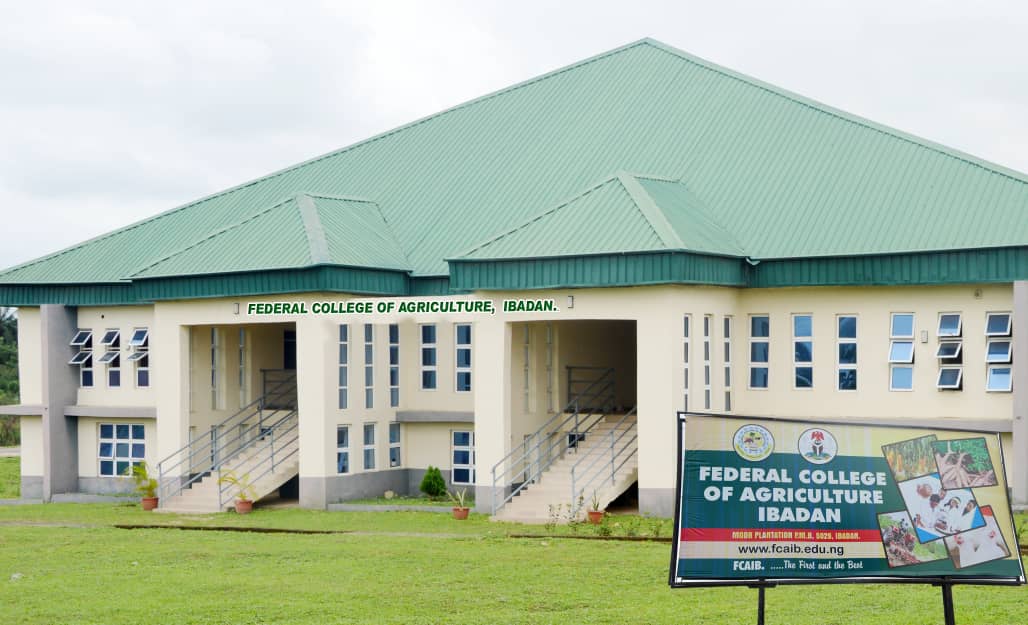
FCAIB is set to launch degree programmes in partnership with FUNAAB
IBADAN, OYO STATE, NIGERIA – In a groundbreaking move, the Federal University of Agriculture, Abeokuta (FUNAAB) has given the green light for the introduction of two innovative degree programmes at the Federal College of Agriculture, Ibadan (FCAIB), set to kick off in the 2025/2026 academic session.
According to an official release e-signed and made available to the media by Mrs. Wilson Oyekemi, Head of the Public Relations Unit of the institution, the newly approved programmes are B.Sc. (Home Science and Management) and B.Agric. (Agricultural Science).
As stated, the next academic session will witness the official commencement of both degree programmes, which constitutes a major breakthrough in the College’s academic development.
Established in 1921, the Federal College of Agriculture, Ibadan (FCAIB), originally known as the School of Agriculture, proudly stands as Nigeria’s and West Africa’s first agricultural institution, with a long and storied history.
The College’s roots trace further back to 1899, when Moor Plantation, Ibadan was established as a model farm to promote rubber cultivation and general agricultural improvement.
By 1905, the station evolved into an experimental research centre, focusing primarily on cotton production and other key agricultural studies.
The formal establishment of the School of Agriculture in 1921 marked the beginning of structured agricultural education in Nigeria.
Following the regionalization of education in 1954, the school relocated to its present site – where it has since grown into a formidable centre of agricultural learning and innovation.
Over the past century, the Federal College of Agriculture, Ibadan, has consistently upheld its mission of contributing to Nigeria’s agricultural development through qualitative education, skills acquisition, and the production of middle-level manpower for the agricultural sector.
The institution remains committed to empowering students with practical, hands-on skills and modern knowledge tailored to meet the evolving needs of agribusiness and food production in the 21st century.
Becoming Nigeria’s Premier Agricultural Institution, FCAIB envisions becoming the foremost agricultural education institution in Nigeria’s tertiary education system – a vision strengthened by its continued academic expansion and infastructural growth.
With over 100 years of continuous service, the Federal College of Agriculture, Ibadan has built a strong reputation as a leader in agricultural education, training, and research across the subregion.
The College currently offers a wide range of National Diploma (ND) and Higher National Diploma (HND) programmes across several disciplines, including:
National Diploma Programmes:
– Agricultural and Bio-Environmental Engineering Technology
– Agricultural Technology
– Home and Rural Economics
– Horticultural Technology
– Cooperative Economics and Management
– Science Laboratory Technology (SLT)
– Computer Science
– Food Technology
– Office Management Technology
– Library and information Science
– Multimedia Technology
– Organic Agricultural Technology
Higher National Diploma Programmes:
– Agricultural and Bio-Environmental Engineering Technology (Farm Power/Post-Harvest Technology/Soil & Water options)
– Agricultural Extension and Management
– Animal Production Technology
– Crop Production Technology
– Horticultural Technology
– Agribusiness Management
– Pest Management Technology
– Science Laboratory Technology (Microbiology Option)
These programmes are designed to blend theory with practical field experience, ensuring graduates are job-ready and self-reliant in the agricultural sector.
Beyond academic instruction, FCAIB maintains a strong emphasis on research and development, particularly in areas that directly impact food production and sustainable agricultural practices.
Recent infrastructural developments at the institution included the establishment of a Meteorological Centre, a Garri Processing Plant and an Oil Palm Processing Unit, all aimed at enhancing research, student training, and community impact.
The 9th and current Provost who doubled as the 28th Head of the 105 year-old Federal College of Agriculture, Ibadan, Prof. Jonathan Jeremiah Atungwu, a distinguished Nigerian academic Professor of Plant Nematology and an expert in Organic Agriculture and Biopesticides development with
research focus on non-chemical crop protection options, remained a focused and visionary leader.
He is Certified locally and internationally with enviable credentials, some of which include but not limited to:
– Over 100 publications in reputable outlets
– Expertise in Organic Agriculture and Biopesticides development.
– A team player with demonstrated leadership skills and experience in various capacities: Past Dean (COLPLANT) in FUNAAB and LASU, President of several professional societies.
– Membership and leadership in international and local organizations, such as ISOFAR, ISPP, NSPP, NISOP, ADAN and many more.
Prof. Atungwu is a renowned mentor for the upcoming agricultural scientists, teachers, agropreneurs, and youths.
He is happily married, and blessed with pleasant, hardworking, and disciplined children.
-

 celebrity radar - gossips6 months ago
celebrity radar - gossips6 months agoWhy Babangida’s Hilltop Home Became Nigeria’s Political “Mecca”
-

 society6 months ago
society6 months agoPower is a Loan, Not a Possession: The Sacred Duty of Planting People
-

 society5 months ago
society5 months agoReligion: Africa’s Oldest Weapon of Enslavement and the Forgotten Truth
-

 news6 months ago
news6 months agoTHE APPOINTMENT OF WASIU AYINDE BY THE FEDERAL GOVERNMENT AS AN AMBASSADOR SOUNDS EMBARRASSING


